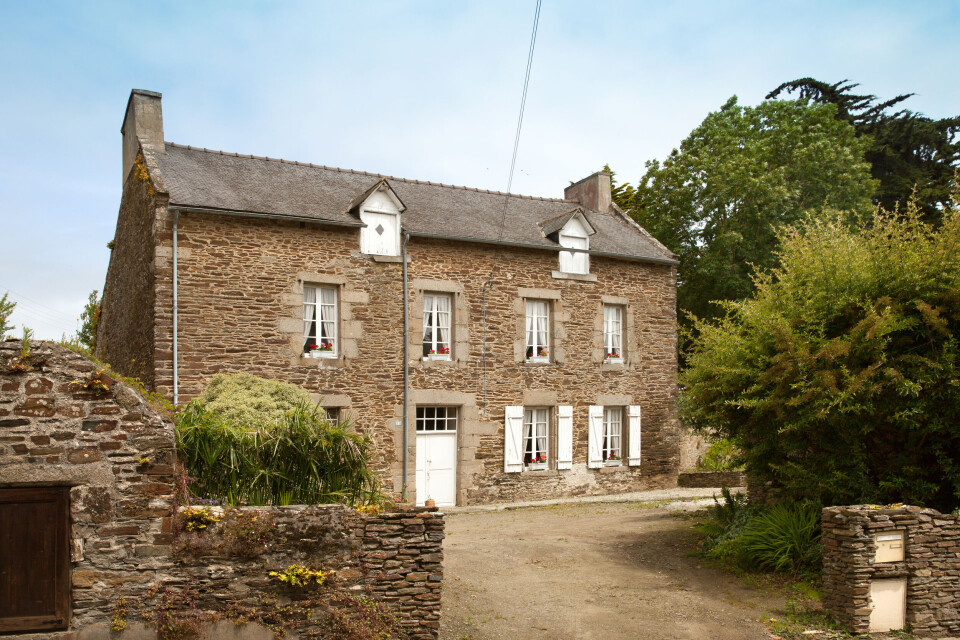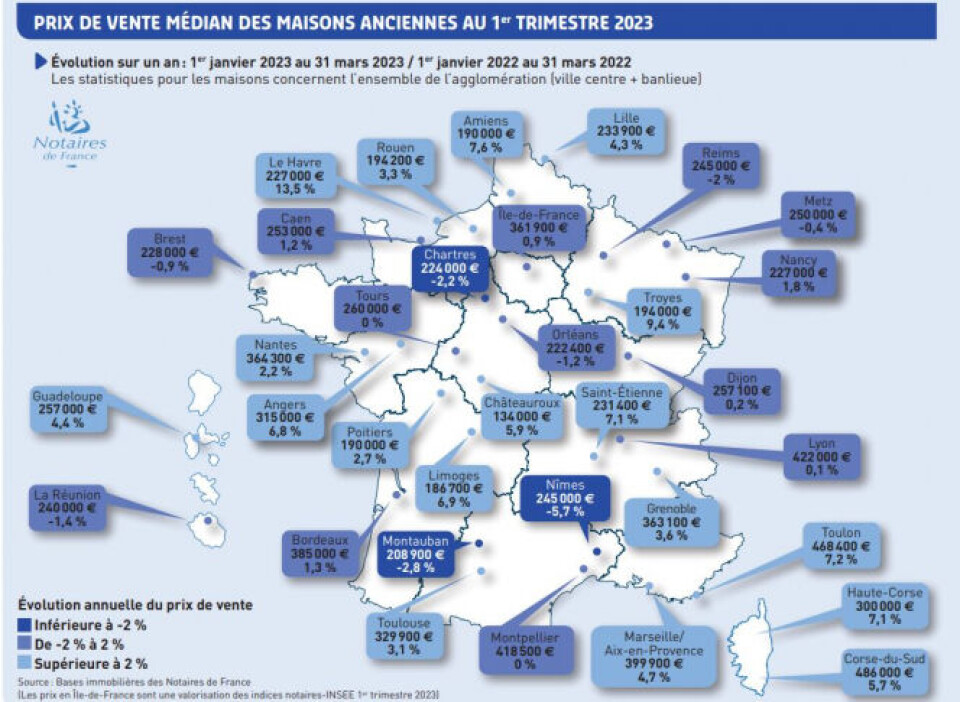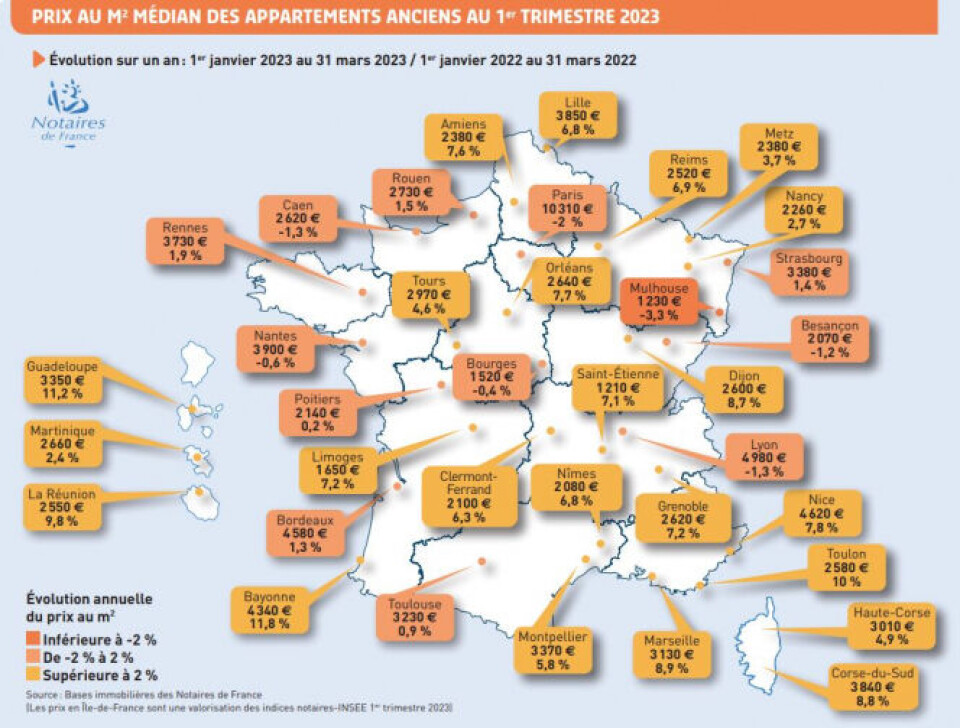-
New notaire data suggests easing of Paris property crisis
Property experts have talked of ‘easing pressure’ and ‘breathing space’ after a four-year slump
-
Property prices rising in France but buyers still negotiating
New figures suggest that it is still a ‘buyer’s market’ - but this may not last
-
Five ways the latest 2025 budget will impact property owners in France
Changes include increasing notaire fees, tax exemption from property gifts and the extension of the Loc'Avantages rental scheme
See how property prices have changed in your corner of France
New figures show values in coastal areas are holding up relatively well

Property prices in French coastal areas are enduring a wider slump better than in northern, inland areas, newly published data shows.
The trend was revealed in a report from the Notaires de France, which compiles the latest figures on non-new-build property sales.
Their latest data release - the most accurate in France - covers up to the end of March as well as provisional figures for this year’s second quarter to July.
Despite year-on-year price growth in areas on the coast - such as the Mediterranean - large drops in the previous quarter and stagnation in larger cities means the nationwide figure continues to shrink.
Nationally, prices grew 2.7% in the first three months of this year, compared with the same period in 2022.
However, growth was 4.6% for the first quarter of 2022 when put up against the same three months in 2021.
This points to an incoming property price slump – underway in 2023, but not yet represented in the notaire data.
Regional differences main cause of home price increase
Alongside the overall national trends, the notaires compare the median price for properties in a number of cities, comparing year-on-year sales prices, or the cost per m² for a flat.
This set of data looked at the comparison in house prices between January-March 2022 and the same period this year.
In terms of house price changes, the results were a mixed bag. While some areas saw a significant drop in prices - Nîmes, Montauban, Chartres - many places saw low or negative growth.

Credit: Notaires de France
Some increases were recorded, particularly in coastal areas, particularly in the south and north.
However, these must be seen in a wider context.
For example, except for Montpellier, towns and cities in the south have continued to see growth in house prices, but at a much lower rate than previously.
Year-on-year rises of 25% were recorded in Corsica for the July-September third quarter of last year, compared with the same period in 2021.
Elsewhere, Brest - which showed year-on-year growth of 14% in the last quarter of 2022 - saw a fall of 0.4% in the first quarter of this year, compared with the January-March period 12 months previously.
On the flip side, Metz saw a stabilisation of prices this time around, after a 7% year-on-year drop in the October-December 2022 period.
The three most expensive areas for purchasing a home according to the notaire data - which lumps Paris in with the Île-de-France region rather than consider it as a separate city - are Corse-du-Sud (€486,000), Toulon (€468,400) and Lyon (€422,000).
The three cheapest locations were Châteauroux (€134,000), Limoges (€186,700) and Poitiers (€190,000). Be aware, however, the Notaires data does not cover every urban area in France.
Overall, housing prices in France fell by 0.2% in the January-March period of this year, compared with the previous quarter.
The data in the map above covers a twelve-month period (January-March 2022 versus January-March 2023), so is still influenced by the state of the housing market in 2022, when prices were growing strongly.
Future data sets – covering more figures from 2023 – will more accurately reflect the full effect of the property slump on prices.
Read more: New data highlights six key trends in France’s property market
Flat prices show a similar story
The notaire data also covers median flat prices (per m²) over the same period and shows a very similar story as for house prices.
With regional exceptions – again, price growth is fairly strong in the Mediterranean region – fluctuations were smaller than previously recorded, and included falls in major cities.
You can see the information below:

Credit: Notaires de France
As with the data for housing prices, most locations have not recorded a significant change over the 12 months measured.
Notably, although prices in Paris are by far the highest (flat data is recorded separately for Paris, unlike home data), the prices have continued to fall.
The notaires believe that the price per m² of a flat in the capital could even drop below €10,000 in the coming months.
Although flat prices in major cities remained stable in this data set, the notaires predict large drops – by as much as 4% – in France’s major cities by the end of 2023.
Note: All data for house prices is shown for individual cities and compares the January-March 2022 period with January-March 2023. The exceptions are Corsica (shown at its overall departmental level) and Île-de-France (which includes Paris and the surrounding departments).
The housing price data from Marseille and Aix-en-Province is combined into one single set covering both cities.
Read also
Britons no longer the biggest group of foreign homebuyers in France
Timing is key when buying French coastal apartments
























